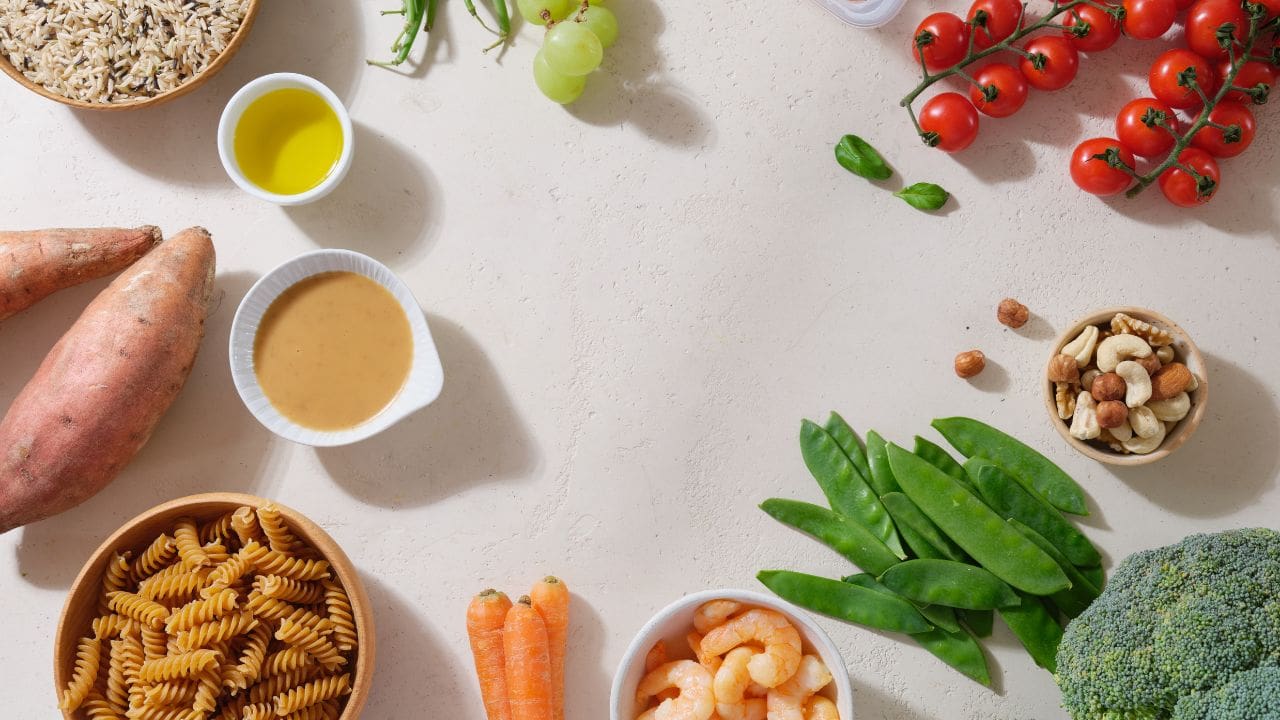Health
7 Key Components to Ensure Comprehensive Vegan Nutrition


In the realm of vegan nutrition, ensuring a comprehensive and balanced diet is paramount to meeting the body’s nutritional needs. While the decision to embrace a vegan lifestyle is often rooted in ethical, environmental, or health-related considerations, it is essential to acknowledge and address the potential nutritional gaps that can arise from the absence of animal products in one’s diet.
By understanding and incorporating the seven key components of vegan nutrition, individuals can proactively safeguard their health and well-being, all while thriving on a plant-based diet.
Key Takeaways
- Legumes, tofu, tempeh, and whole grains are excellent sources of plant-based protein for vegans.
- Vegans should ensure they are getting enough vitamin B12 through fortified plant-based sources or supplements.
- Flaxseeds, chia seeds, walnuts, and fortified plant-based foods can help vegans meet their omega-3 fatty acid needs.
- Consuming iron-rich plant-based foods alongside vitamin C-rich foods and avoiding tea or coffee with meals can aid in better iron absorption.
Protein Sources
When following a vegan diet, obtaining sufficient protein can be achieved through a variety of plant-based sources.
Legumes such as lentils, chickpeas, and black beans are excellent sources of protein, offering approximately 15-20 grams of protein per cooked cup.
Tofu and tempeh, both made from soybeans, are also rich sources of protein, providing about 20-30 grams per cup.


Additionally, seitan, a popular meat substitute made from wheat gluten, contains approximately 25 grams of protein per 3-ounce serving.
Nuts and seeds, including almonds, peanuts, chia seeds, and hemp seeds, contribute to the protein intake and offer essential fatty acids, fiber, and micronutrients.
Moreover, whole grains such as quinoa, bulgur, and wild rice contain moderate amounts of protein, averaging around 6-8 grams per cooked cup.
Incorporating a variety of these plant-based protein sources into meals ensures that vegans can meet their protein requirements while enjoying a diverse and flavorful diet.
Vitamin B12
Vitamin B12, an essential nutrient for overall health and well-being, is a crucial component of a vegan diet due to its scarcity in plant-based foods. This water-soluble vitamin plays a key role in red blood cell formation, neurological function, and DNA synthesis. Deficiency in vitamin B12 can lead to anemia, fatigue, nerve damage, and other serious health issues. As such, it is imperative for vegans to ensure an adequate intake of this vital nutrient.


While vitamin B12 is predominantly found in animal products, there are several fortified foods and supplements that can fulfill the B12 requirements of a vegan diet. Fortified plant-based milk, breakfast cereals, and nutritional yeast are common sources of vitamin B12 for vegans. Additionally, B12 supplements, either in the form of cyanocobalamin or methylcobalamin, are widely available and offer a convenient way to meet the body’s B12 needs.
Given the importance of vitamin B12 for overall health, it is essential for vegans to be mindful of their B12 intake and consider fortified foods or supplements as necessary additions to their diet. Regular monitoring of B12 levels through blood tests is advisable to ensure adequate intake and prevent potential deficiencies.
Omega-3 Fatty Acids
Omega-3 fatty acids are essential polyunsaturated fats that play a crucial role in supporting heart, brain, and overall health. As a vegan, it’s important to ensure adequate intake of these beneficial fats.
Here are three key sources of vegan-friendly omega-3 fatty acids:
- Flaxseeds and Flaxseed Oil: These are rich sources of alpha-linolenic acid (ALA), a type of omega-3 fatty acid. Including ground flaxseeds or flaxseed oil in your daily diet can help fulfill your omega-3 requirements.
- Chia Seeds: Chia seeds are another excellent plant-based source of ALA. They can be easily incorporated into smoothies, oatmeal, or used as an egg substitute in vegan baking.
- Walnuts: Walnuts are unique among nuts because they contain a significant amount of ALA. Snacking on a handful of walnuts or adding them to salads can contribute to your omega-3 intake.
In addition to these sources, fortified foods like plant-based milk, yogurt, and eggs can also be valuable contributors to omega-3 intake for vegans. Prioritizing these foods can help vegans meet their omega-3 fatty acid needs for optimal health.


Iron Intake
An essential nutrient for vegans to pay close attention to is iron, as it plays a vital role in various bodily functions. Iron is crucial for the formation of hemoglobin, which carries oxygen to the body’s tissues, as well as for overall energy production.
Plant-based sources of iron include lentils, chickpeas, tofu, quinoa, and pumpkin seeds. To enhance iron absorption, it is advisable to consume vitamin C-rich foods, such as citrus fruits, alongside iron-containing meals.
Additionally, avoiding the consumption of tea or coffee with meals can also aid in better iron absorption. It’s important for vegans to monitor their iron levels regularly, as deficiency can lead to anemia and fatigue.
For individuals struggling to meet their iron needs through diet alone, supplementation can be considered, but it’s essential to consult with a healthcare professional before starting any new supplements.
Calcium Sources
When following a vegan diet, it’s important to ensure an adequate intake of calcium for overall bone health and other physiological functions.


Plant-based sources such as leafy greens, tofu, and almonds can provide a significant amount of calcium.
Additionally, fortified foods like plant-based milk and orange juice can contribute to meeting daily calcium needs.
Plant-Based Calcium
A variety of plant-based sources, such as leafy greens, tofu, almonds, and fortified plant milks, can provide ample calcium to support a vegan diet. When incorporating plant-based calcium into your diet, consider these essential sources:
- Leafy Greens: Incorporate vegetables like kale, collard greens, and bok choy into your meals to boost calcium intake.
- Tofu: Opt for tofu made with calcium sulfate, as it contains higher levels of the mineral.
- Fortified Plant Milks: Choose fortified plant milks such as almond, soy, or oat milk to ensure an adequate calcium supply.
It’s important to prioritize a diverse range of these calcium sources to meet daily requirements and maintain optimal bone health while adhering to a vegan lifestyle.
Fortified Foods
In addition to plant-based sources like leafy greens, tofu, and fortified plant milks, fortified foods also serve as valuable sources of calcium for individuals adhering to a vegan diet. Fortified orange juice, cereals, and plant-based yogurts can provide significant amounts of calcium.


When choosing fortified foods, it’s essential to check the nutrition labels to ensure they are fortified with calcium carbonate, calcium citrate, or tricalcium phosphate, as these are the most bioavailable forms of calcium. The fortification levels can vary, so opting for products that provide around 300-500 mg of calcium per serving can help individuals meet their daily calcium needs.
Including a variety of fortified foods in a vegan diet can contribute to achieving optimal calcium intake, supporting bone health and overall well-being.
Absorption Factors
To optimize calcium absorption from plant-based sources, it is important to consider the influence of absorption factors such as oxalates, phytates, and vitamin D. These factors can impact the body’s ability to effectively utilize the calcium present in vegan foods. Here are some key points to keep in mind:
- Oxalates: Found in foods like spinach, beet greens, and almonds, oxalates can bind to calcium, reducing its absorption. Pairing these foods with others lower in oxalates can help mitigate this effect.
- Phytates: Present in grains, seeds, and legumes, phytates can also inhibit calcium absorption. Soaking, sprouting, or fermenting these foods can help reduce their phytate content, enhancing calcium absorption.
- Vitamin D: Essential for calcium absorption, adequate vitamin D levels can be achieved through sun exposure, fortified foods, or supplements, ensuring optimal utilization of calcium in the body.
Dietary Fiber
Dietary fiber is an essential component of a well-rounded vegan diet, providing numerous health benefits such as improved digestion and lowered risk of chronic diseases. Found exclusively in plant-based foods, dietary fiber is crucial for maintaining a healthy gut and overall well-being.
There are two main types of dietary fiber: soluble and insoluble. Soluble fiber, found in foods like oats, legumes, and fruits, helps to slow down digestion, regulate blood sugar levels, and lower cholesterol. On the other hand, insoluble fiber, present in foods such as whole grains, nuts, and vegetables, adds bulk to the stool, preventing constipation and promoting regular bowel movements.


For vegans, it’s important to consume a variety of high-fiber foods to ensure an adequate intake. Some excellent sources of dietary fiber include whole grains like quinoa and brown rice, legumes such as lentils and chickpeas, as well as a wide array of fruits and vegetables.
Meal Balance
When it comes to comprehensive vegan nutrition, meal balance is crucial for meeting daily nutrient needs.
Nutrient-rich meals that include a variety of fruits, vegetables, whole grains, and plant-based proteins are essential for maintaining optimal health.
Ensuring adequate protein intake through a diverse range of plant-based sources is also fundamental for vegans to support muscle function, immune health, and overall well-being.
Nutrient-Rich Meals
Achieving nutrient-rich meals is essential for maintaining a balanced vegan diet that supports overall health and well-being. To ensure comprehensive vegan nutrition, it’s important to focus on meal balance by incorporating the following key components:


- Variety: Include a diverse range of fruits, vegetables, whole grains, legumes, nuts, and seeds in your meals to access a wide spectrum of essential nutrients.
- Protein Sources: Incorporate plant-based protein sources such as lentils, chickpeas, tofu, tempeh, and quinoa into your meals to meet your body’s protein needs.
- Healthy Fats: Integrate sources of healthy fats like avocados, nuts, seeds, and plant-based oils to support brain function, hormone production, and overall health.
Protein and Variety
To ensure a well-rounded vegan diet that supports overall health, it is imperative to maintain a focus on meal balance. This can be achieved by addressing the crucial aspects of protein and variety in food choices.
Protein is essential for building and repairing tissues. While it is abundant in animal products, it can also be obtained from plant-based sources such as lentils, chickpeas, quinoa, and tofu.
Ensuring variety in food choices is vital to obtain a wide range of nutrients. Different colored fruits and vegetables offer various vitamins, minerals, and antioxidants. Whole grains, nuts, and seeds provide essential fatty acids and micronutrients.
Frequently Asked Questions
Are There Any Potential Risks or Deficiencies Associated With a Vegan Diet That Should Be Monitored?
Potential risks or deficiencies associated with a vegan diet include inadequate intake of certain nutrients like vitamin B12, iron, calcium, omega-3 fatty acids, and protein. Regular monitoring and supplementation can help mitigate these concerns.
What Are Some Lesser-Known Sources of Calcium for Vegans?
Some lesser-known sources of calcium for vegans include fortified plant milks, tofu made with calcium sulfate, and certain leafy greens like kale and bok choy. These options can help meet calcium needs in a vegan diet.


Can You Provide Tips for Balancing Meals to Ensure Optimal Nutrition on a Vegan Diet?
Balancing meals on a vegan diet involves incorporating a variety of plant-based foods to ensure adequate intake of protein, vitamins, and minerals. Focus on whole grains, legumes, fruits, vegetables, nuts, and seeds for a well-rounded nutritional profile.
How Can Vegans Ensure They Are Getting Enough Dietary Fiber in Their Diet?
Incorporate whole grains, legumes, fruits, and vegetables into your daily meals to ensure adequate fiber intake. These foods provide essential nutrients and promote digestive health. Aim for at least 25-30 grams of fiber per day to support overall well-being on a vegan diet.
What Are Some Creative Ways to Incorporate Omega-3 Fatty Acids Into a Vegan Diet?
Incorporating omega-3 fatty acids into a vegan diet can be achieved through consuming foods like flaxseeds, chia seeds, hemp seeds, walnuts, and algae-based supplements. These sources provide essential ALA, EPA, and DHA for optimal health.


Hi, I’m Kyle Rivera, a news journalist and blog editor with the Daily Evening News. A TCU alum with a flair for storytelling, I spend my days uncovering impactful stories and my evenings exploring the realms of yoga, cycling, and whimsically bad poetry.
Travel is my escape; I’ve trekked from Tokyo’s neon lights to Iceland’s tranquil vistas. But no journey is complete without Mogli, my Golden Retriever, who’s redefining his breed standards in the most charming ways.
I love connecting with fellow travelers, yogis, cyclists, and anyone who enjoys a laugh at my poetic attempts. If you’re into stories that inspire, travel escapades, or just want to see what Mogli and I are up to, I’d love to hear from you on Instagram or Facebook. Let’s share tales and tips from around the globe!

